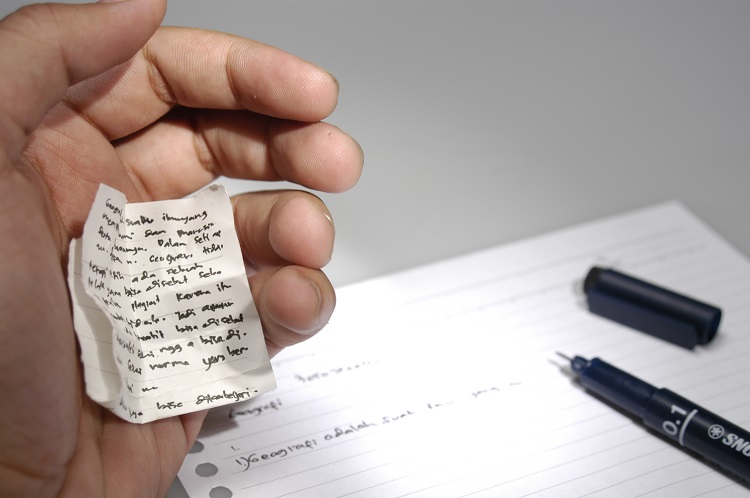A lot of students cheat. A survey of 24,000 students in 70 high schools by Rutgers Business School professor Donald McCabe found that 95 percent admitted to cheating in some form at some point in their school career.
Some believe students cheat more in online courses than in in-person courses. However, a study from 2010 showed that almost the same exact percentage of students admitted to cheating in online courses as cheating during in-person courses.
The reality is that cheating, or ”breach of academic integrity” as I like to call it, occurs in every model of education: in-person, online, and blended. Efforts to reduce cheating begin with understanding and informing students what it is, why it’s wrong and how to avoid it. As it turns out, there are some well-worn and proven tactics educators and parents can employ to increase academic integrity.
Why Students Cheat
Unfortunately, it’s almost impossible to stop cheating altogether. Here’s why:
- Pressure. Even the most ethical and well-raised child can quickly slip into cheating behavior when the stakes are high and the pressure mounts.
- Cheating works. Whether a friend who used their cell phone to ace a test, the Ponzi scheme that rakes in millions, or a bank that used ”questionable accounting,” the message to students is clear: A lot of the time, cheating works. And it appears chances of getting caught are slim.
- They don’t realize it’s cheating. Many times, the student who is cheating doesn’t see it as cheating. They see it as normal behavior. See something I like online? Copy and paste it to my Facebook page to share with my friends. But that may be a problem. The difference between research and plagiarism can be summed up in one word: citation. The student who cites sources are good researchers. Those that don’t are plagiarists.
7 Steps to Reduce Cheating
Parents may wonder how or if teachers make an effort to prevent cheating in the classroom or in online learning environments. Here are some common tactics:
- Randomize questions and answers on multiple-choice tests. The use of randomly-chosen questions from a bank of questions about a topic – and then randomizing the order of the choices – can greatly improve the academic integrity of a test.
- Use open-ended assessments. Employing open-ended questions and assignments which require the student to apply their knowledge as opposed to simply repeating it back to the teacher can be very effective.
- Use Plagiarism Checkers. Once you have the responses to your open-ended assessments, submitting them to plagiarism-checking services such as TurnItIn can quickly identify when a student has copied content from another student’s paper or from the Internet.
- Assess early and often. Don’t rely on only a handful of high-stakes tests to form the final score of a course. Frequent and regularly spaced assessments provide a better overall picture of student learning, and reduce the pressure felt by students when only one or two high-stakes tests account for their grade in the course.
- Use multiple-stage projects as assessments. Projects that require students to complete several phases of work – all related and tied together to complete the entire project – are harder to cheat on. For example, K12 Literary Analysis and Composition students can’t complete a writing assignment by simply handing in the final essay. It has to be preceded by a set of planning documents and first draft, showing the evolution of their assignments.
- Use a Lockdown Browser. Although 80% of high school students have access to a mobile computing device, using a lock down browser – one that restricts students from visiting other websites during the test – can help keep the honest kids honest and remove the distraction and temptation that can lead to cheating. (Parents and homeschoolers can use this strategy, too.)
- Proctor high stakes tests. Remote proctoring is a relatively new and emerging method used by online schools. Online proctoring uses a combination of webcam and computer-desktop recording.
I don’t think we can – or will – ever stop cheating. But as educators, we can and do take these important steps to improve academic integrity.





































